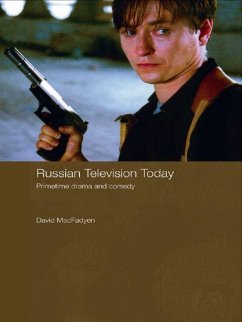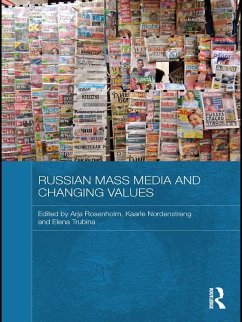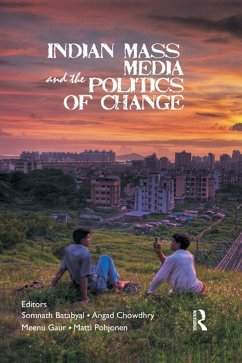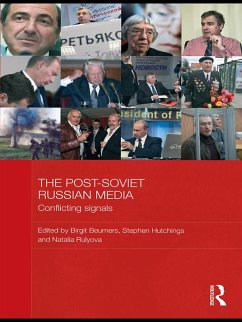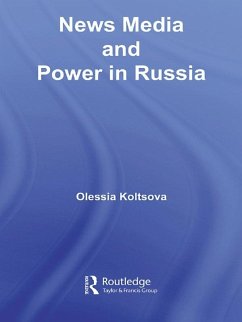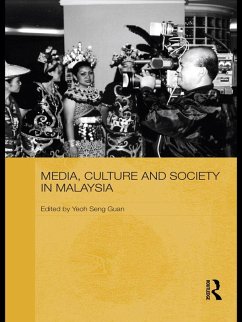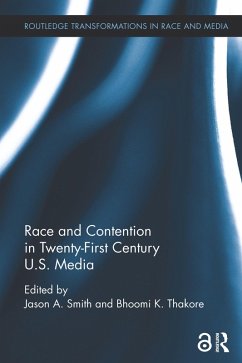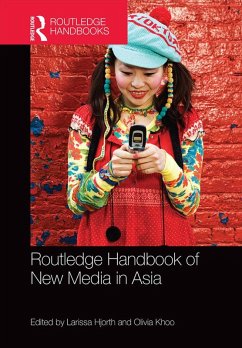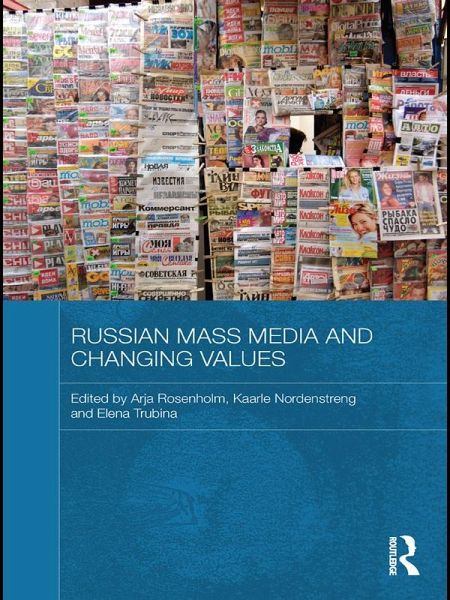
Russian Mass Media and Changing Values (eBook, ePUB)
Versandkostenfrei!
Sofort per Download lieferbar
35,95 €
inkl. MwSt.
Weitere Ausgaben:

PAYBACK Punkte
18 °P sammeln!
This book provides a multi-faceted picture of the many complex processes taking place in the field of contemporary Russian media and popular culture. Russian social and cultural life today is strongly individualised and consumers are offered innumerable alternatives; but at the same time options are limited by the new technologies of control which are a key feature of Russian capitalism. Based on extensive original research by scholars in both Russia itself and in Finland, the book discusses new developments in the media industry and assesses a wide range of social and cultural changes, many o...
This book provides a multi-faceted picture of the many complex processes taking place in the field of contemporary Russian media and popular culture. Russian social and cultural life today is strongly individualised and consumers are offered innumerable alternatives; but at the same time options are limited by the new technologies of control which are a key feature of Russian capitalism. Based on extensive original research by scholars in both Russia itself and in Finland, the book discusses new developments in the media industry and assesses a wide range of social and cultural changes, many of which are related to, and to an extent generated by, the media.
The book argues that the Russian mass media industry, whilst facing the challenges of globalization, serves several purposes including making a profit, reinforcing patriotic discourse and popularizing liberalized lifestyles. Topics include changing social identities, new lifestyles, ideas of "glamour" and "professional values". Overall, the book demonstrates that the media in Russia is far from homogenous, and that, as in the West, despite new technologies of control, media audiences are being offered a new kind of pluralism which is profoundly influencing Russia's cultural, social and political landscape.
The book argues that the Russian mass media industry, whilst facing the challenges of globalization, serves several purposes including making a profit, reinforcing patriotic discourse and popularizing liberalized lifestyles. Topics include changing social identities, new lifestyles, ideas of "glamour" and "professional values". Overall, the book demonstrates that the media in Russia is far from homogenous, and that, as in the West, despite new technologies of control, media audiences are being offered a new kind of pluralism which is profoundly influencing Russia's cultural, social and political landscape.
Dieser Download kann aus rechtlichen Gründen nur mit Rechnungsadresse in A, B, BG, CY, CZ, D, DK, EW, E, FIN, F, GR, HR, H, IRL, I, LT, L, LR, M, NL, PL, P, R, S, SLO, SK ausgeliefert werden.




